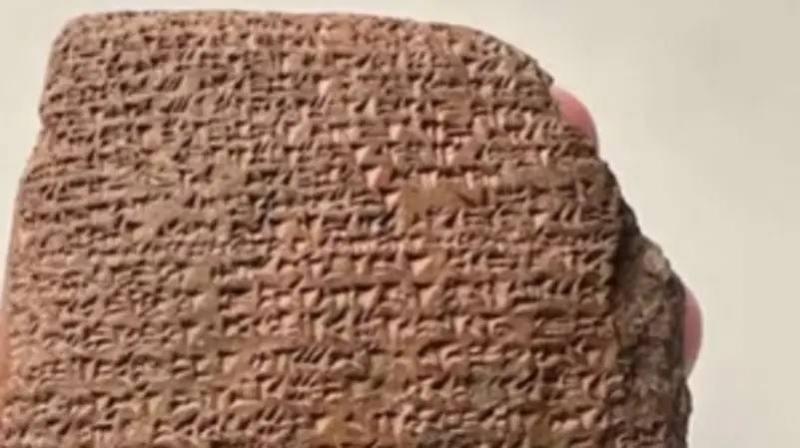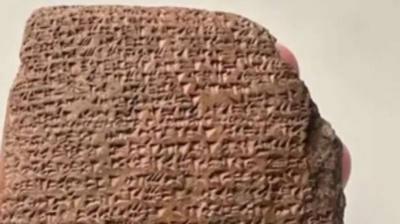A 3,300-year-old clay tablet discovered in 2023 in central Turkey revealed details of a "catastrophic" foreign invasion of the Hittite Empire, one of the powerful states of the Bronze Age. The small tablet was found by archaeologist Kimiyoshi Matsumura from the Japanese Institute of Anatolian Archaeology in May of the previous year at the ruins of the Hittite site of Boğazkale, located about 37 miles southeast of Turkey's capital, Ankara.
The tablet also provides new insights into a darker chapter in the history of the Hittite Empire, which thrived in what are now Turkey, Syria, and Iraq from 1650 BC to around 1200 BC. Despite its significance, much about the Hittite Empire remains shrouded in mystery, mainly due to the language not being deciphered until the early 20th century.
The discovered tablet contains inscriptions in both Hittite and Hurrian that detail the devastating invasion that took place in four Hittite cities during a turbulent period of civil war, as reported by the British newspaper "The Sun." Scholars believe the tablet was used in a religious celebration, possibly as a plea for victory from the Hittite king.
Mark Widen, an assistant professor of ancient Middle Eastern languages at University College London, translated the first six lines. According to Widen, the text states that four cities, including the capital Hattusa, were in "catastrophe." Meanwhile, the remaining 64 lines served as a prayer in Hurrian for victory.




